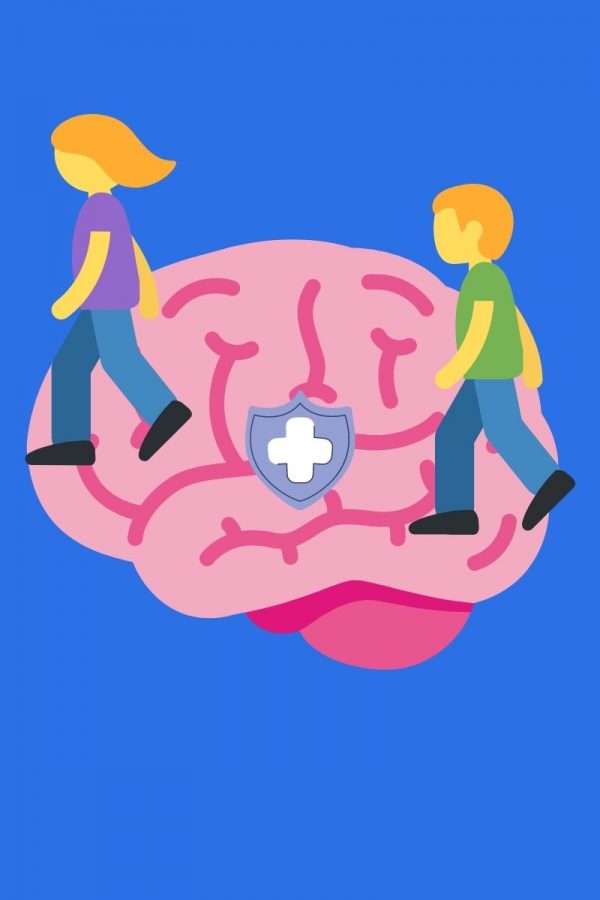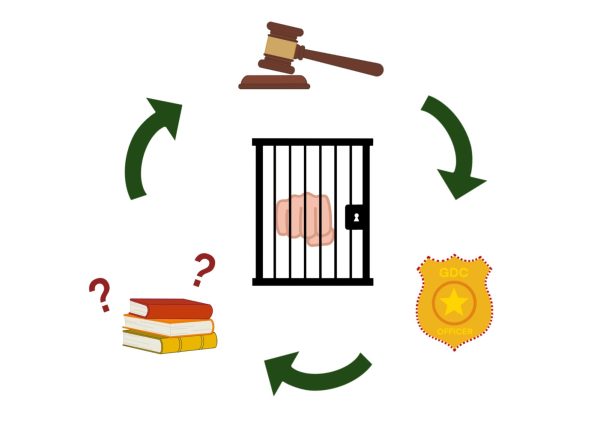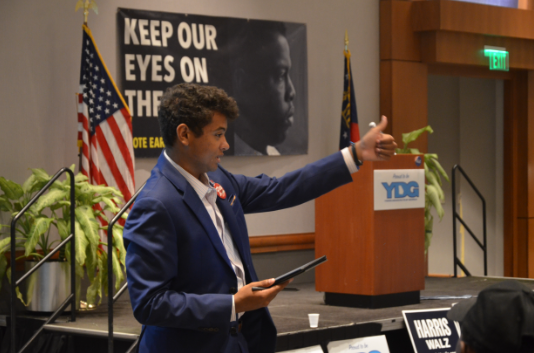Medical professionals weigh in on online learning
Medical professionals emphasize how important it is to exercise for both your mental and physical health.
Students and faculty are spending five hours a day in front of a screen for online instruction plus potentially more hours for independent work and extracurriculars.
Virtual learning, though deemed by medical professionals as a much safer alternative to in-person education during the COVID-19 pandemic, has its own adverse physical and mental health implications for students of all ages.
“Zoom is incredibly exhausting to the brain,” said Dr. Claire Wilkiemeyer, a pediatrician at Old 4th Ward Pediatrics.
That mental fatigue from virtual learning can produce physical symptoms such as headaches and eye problems.
According to Dr. Jennifer Song Badaracco, optometrist at In Focus Eye Center in Inman Park, spending an extended period of time on a screen can lead to burning, tearing, redness and grittiness in the eyes, in addition to eye strain from eye muscle overuse and fatigue. Dr. Badaracco suggests a simple trick to alleviate the severity of some of these eye issues.
“I encourage patients to follow the 20-20-20 Rule. Every 20 minutes, look at something 20 feet away for 20 seconds,” Dr. Badaracco said. “This will force you to blink more often and will help relax the eye muscles.”
While eye muscles are being overused in a virtual setting, the same can’t be said for the rest of the body. Many students sit in one place for an extended period of time during online learning. Dr. Wilkiemeyer notes how important it is to not stay sedentary throughout the school day, especially in between classes.
“If you think about it, in the regular classroom, you’re getting up, and you’re changing positions,” Dr. Wilkiemeyer said. “You’re walking to another class. Doing something active, whether it’s running up and down your stairs or doing some jumping jacks just gets your brain kind of focused again.”
Grady school psychologist David Hosking said living through a time when “there isn’t a person alive who isn’t feeling the stress of this one way or another” can make focusing in class that much more difficult. He emphasized that individual circumstances such as financial, environmental or familial stressors can determine how much online learning is affecting students’ mental health.
“Some are really taking it in stride, and others don’t know where to start,” Hosking said. “They can’t get out of the bed in the morning; they’re self medicating, and they’re doing things that are harmful or abusive. There are just all kinds of ways people respond to stress and anxiety like we’re all feeling and that makes virtual learning doubly difficult.”
As a result of added stressors, the counseling department has offered daily Social Emotional Learning (SEL) Zooms before school to offer students an environment to talk about their feelings.
Social worker Adelia Johnson has facilitated the distribution of resources to students and families to ease some of the instability that might cause additional stress. Grady also has a partnership with CHRIS 180, a mental health provider, to provide students access to mental health support.
“One of the things that Grady really benefits from is that we have lots of layers of support,” Hosking said. “There isn’t just one person. There’s lots of layers of support so that different people can step in as needed based on what the issues are.”
Hosking also emphasized there are simple measures each individual student can take to be more physically and mentally healthy.
“To me, the three things that anyone can do to help themselves deal with stress and feelings of worry or doubt or sadness are to get plenty of sleep, eat well and get lots of exercise,” Hosking said. “We all know these things; we’ve heard them a thousand times, but it’s so much more real now.”
When it comes to long-term health effects from virtual learning, Dr. Wilkiemeyer is still optimistic about the future.
“Kids your age are resilient,” Dr. Wilkiemeyer said. “But you’re definitely going to have to learn resilience, which is that recovery of how you’re feeling in the moment and looking forward into the future, to when life gets back to normal, is a really important thing.”

Dana is a senior who loves using her voice to tell other people's stories as well as share her own views. She really enjoys writing for the Southerner...







